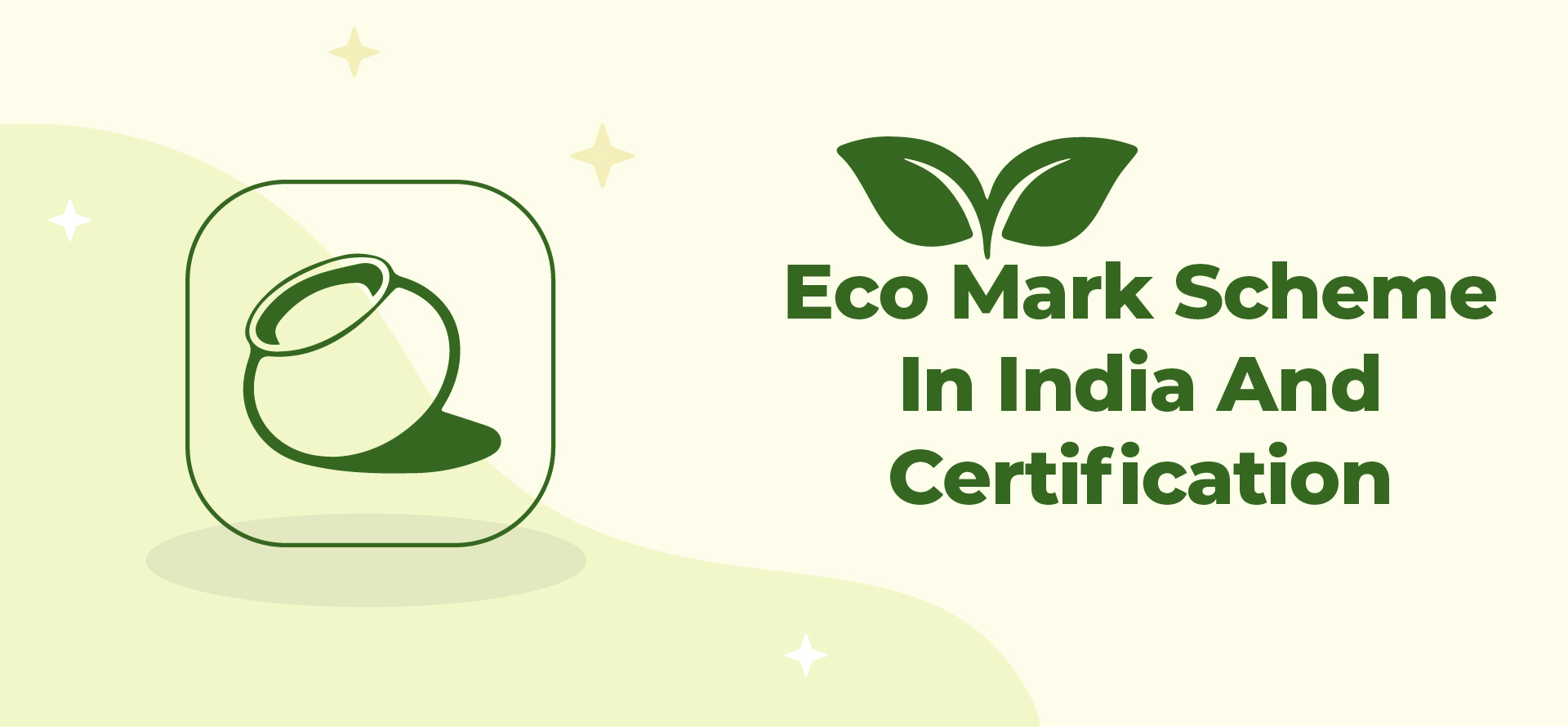Introduction:
Eco Mark is a certification mark used to promote environmentally friendly products and services. Developed by the Bureau of Indian Standards (BIS), the Eco Mark aims to encourage sustainable practices among manufacturers and consumers and encourage environment-friendly products that cause lesser adverse impacts on the environment, thereby, supporting the principles of ‘LIFE (Lifestyle for Environment)’, promote lower energy consumption, resource efficiency and conservation, circular economy and prevent misleading information on environmental aspects of products.
What is Eco Mark?
Eco Mark is a labeling system that identifies products meeting specific environmental criteria. It signifies that the product has been assessed for its environmental impact throughout its lifecycle, from raw material extraction to disposal. The Eco Mark label helps consumers make informed choices, promoting environmentally responsible consumption.
Objectives of Eco Mark Rules
Environmental Protection:
The primary aim is to reduce pollution and conserve natural resources.
Consumer Awareness:
Eco Mark enhances consumer knowledge about eco-friendly products, promoting informed choices.
Encouragement of Sustainable Practices:
By certifying products, the Eco Mark encourages the adoption of sustainable practices.
Promotion of Green Technologies:
The rules foster innovation in environmentally friendly technologies and practices.
Key Features of Eco Mark Rules
- Eligibility Criteria: These criteria include considerations like energy consumption, waste generation, and use of sustainable materials.
- Product Categories: The Eco mark covers various product categories, including:
- Household products (cleaning agents, paints)
- Food and beverages
- Personal care items (soaps, shampoos)
- Building materials
- Packaging materials
- Cosmetics
- Architectural paints and powder coating
- Batteries
- Electric or Electronic Goods etc.
- Certification Process:
Application: Person shall submit an application in Form 1 for grant of Eco Mark for a product which complies with the conditions shall be made to the Central Pollution Control Board Rule 4(1) of Eco Mark Rules, 2024.
Fees: The following fees are required to be paid to the Bureau of Indian Standards for obtaining the Eco Mark
- Application fee of Rs.500/= per application, which is non-refundable
- Testing charges of the independent laboratories for the samples drawn prior to the grant of licence;
- Annual license fee at the rate of Rs.500/= per license;
- Renewal application fee at the rate of Rs.300/= per application when a license is due for renewal; and
- Marking fee, depending upon the quantum of the annual production of the licence
Testing: The product undergoes rigorous testing to ensure compliance with Eco mark standards by the Central Pollution Control Board or through a Verifier, verify whether the product complies with the conditions and grant Eco Mark which shall be valid for a period of three years.
Certification: Upon successful evaluation, the product is granted Eco Mark certification, allowing it to bear the label.
Monitoring and Compliance: Once certified, manufacturers are subject to periodic checks to ensure ongoing compliance with Eco Mark standards.
Eco Mark Logo:
The Eco Mark initiative in India features an earthen pot as its logo. This traditional pot is made from a renewable resource earth and its manufacturing process requires little energy and produces no hazardous waste. Its robust yet elegant design embodies both strength and delicacy, mirroring the complexities of the ecosystem.
As a symbol, the earthen pot effectively communicates an environmental message. Its image resonates with the public and encourages a heightened awareness of the importance of environmental stewardship. The Eco Mark logo signifies that any product carrying it has a minimal impact on the environment.

Benefits of Eco Mark Certification
- Consumer Trust: Products with the Eco Mark label gain credibility among consumers, who are increasingly seeking eco-friendly options.
- Market Differentiation: Eco mark certification helps businesses differentiate their products in a competitive market, attracting environmentally conscious consumers.
- Regulatory Compliance: Adhering to Eco Mark standards often aligns with broader environmental regulations, helping companies avoid legal issues.
- Contribution to Sustainability: By opting for Eco Mark-certified products, consumers support sustainable practices, contributing to overall environmental conservation efforts.
Challenges in Implementation
While Eco Mark has numerous benefits, there are challenges in its implementation:
- Awareness: Many consumers remain unaware of Eco Mark and its significance, limiting its impact.
- Cost of Certification: For small manufacturers, the costs associated with obtaining Eco Mark certification can be prohibitive.
- Consistency in Standards: Ensuring consistent application of Eco Mark rules across various product categories can be complex.
Consequences
Central Pollution Control Board is satisfied that the holder of an Eco Mark has furnished false information or has willfully concealed any information required to be furnished under these rules, it may, after giving the holder of Eco Mark an opportunity to be heard, and by order, for reasons to be recorded in writing, suspend or cancel the Eco Mark and holder of Eco Mark under Rule 5(1) of Eco Mark Rules, 2024, if aggrieved by an order made may prefer an appeal to the Central Government in Form 2 within a period of thirty days (30 days) from the date of receipt of the order of such suspension or cancellation.
Conclusion
Eco Mark plays a crucial role in promoting eco-friendly practices in India. By setting standards for environmentally responsible products, it encourages manufacturers to adopt sustainable methods and empowers consumers to make informed choices. As awareness of environmental issues grows, the relevance of Eco Mark is expected to increase, contributing to a greener, more sustainable future. Adopting and supporting Eco Mark-certified products is not just a choice; it’s a step toward protecting our planet for future generations.
Disclaimer
The information provided in this article is intended for general informational purposes only and should not be construed as legal advice. The content of this article is not intended to create and receipt of it does not constitute any relationship. Readers should not act upon this information without seeking professional legal counsel.


